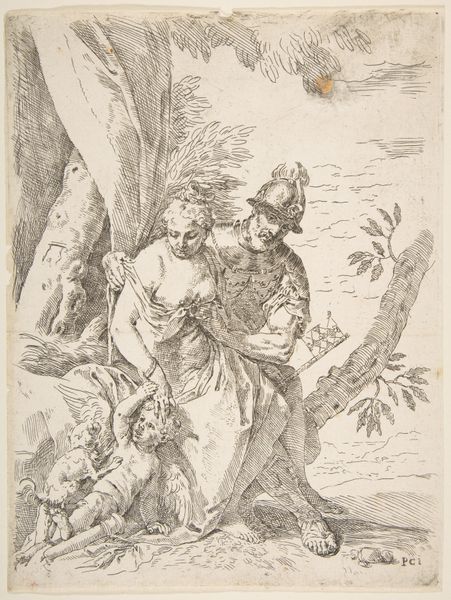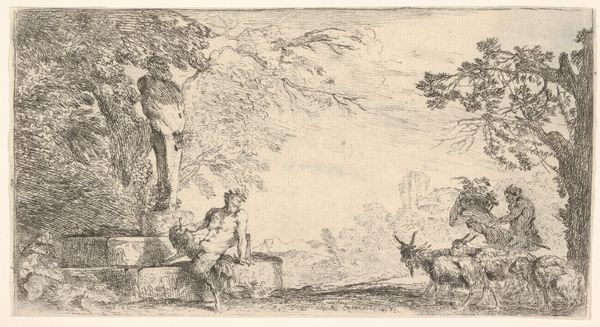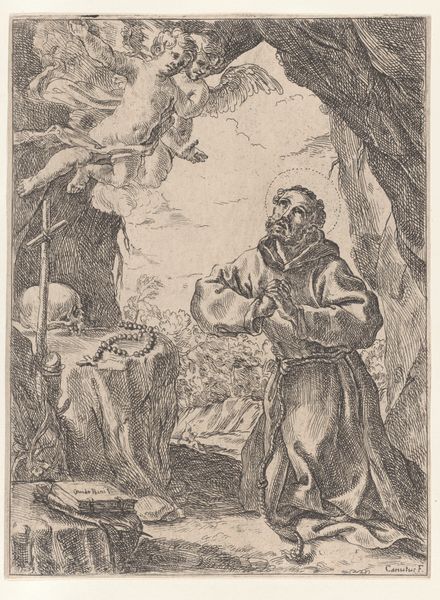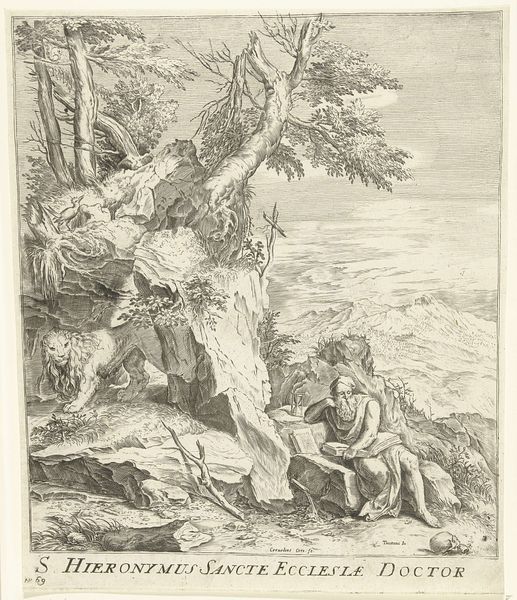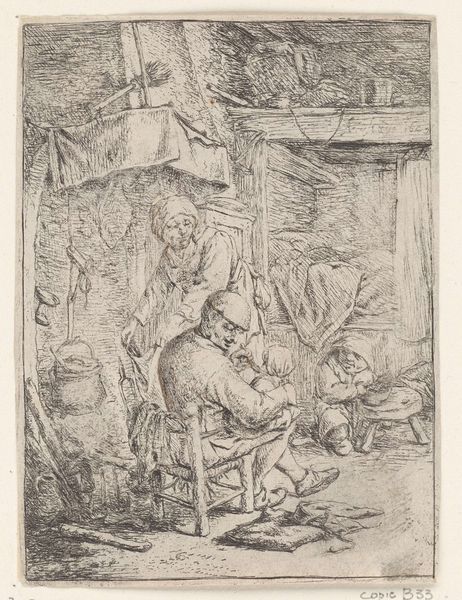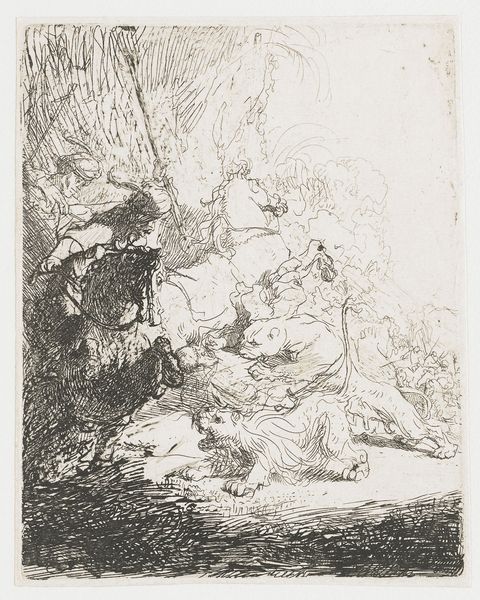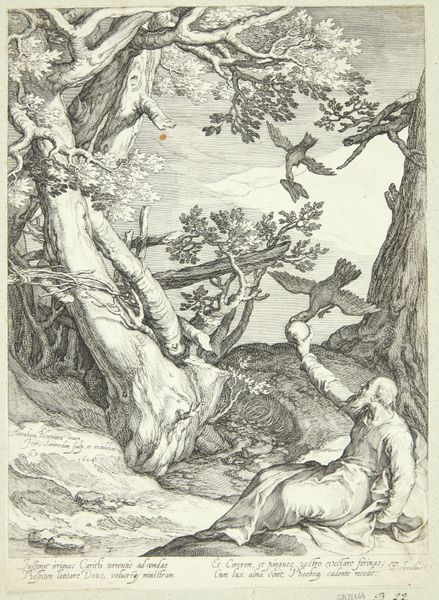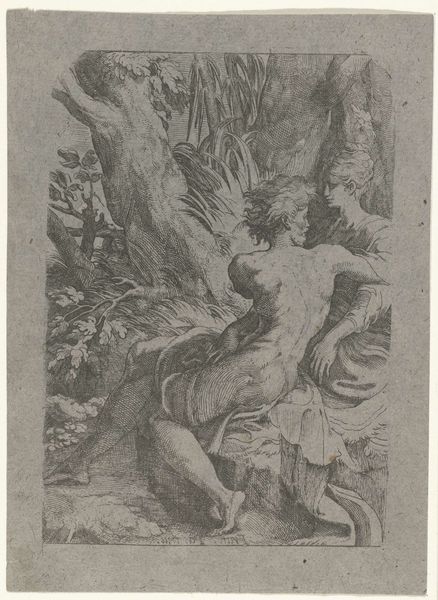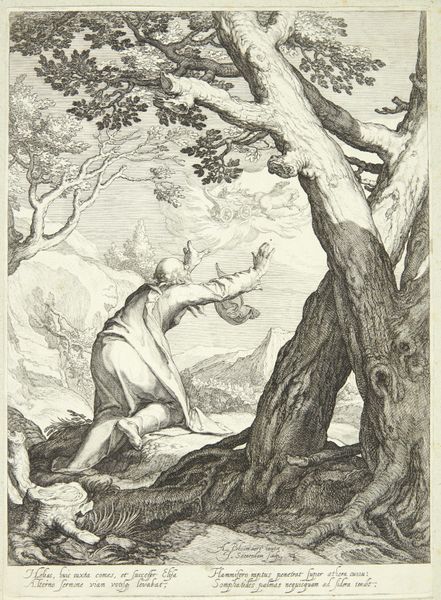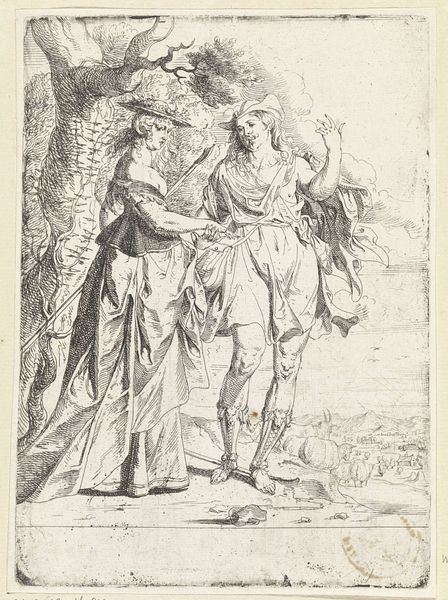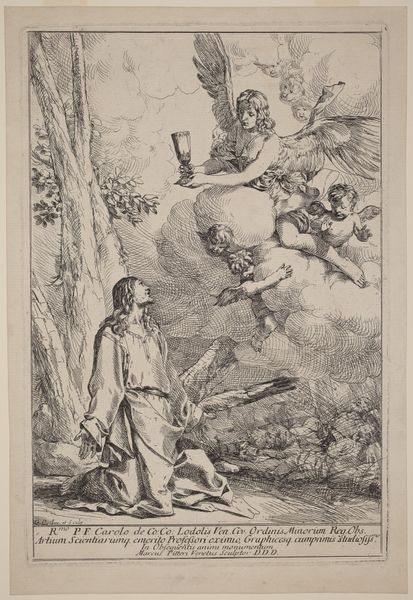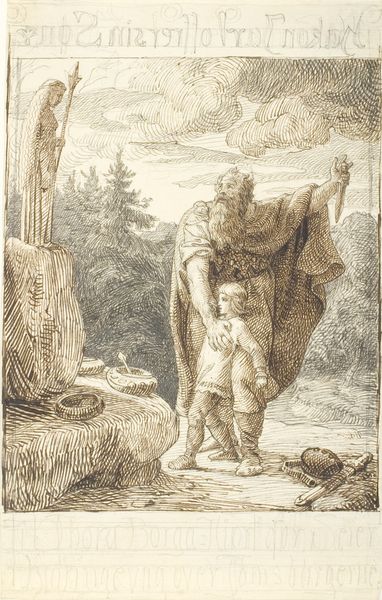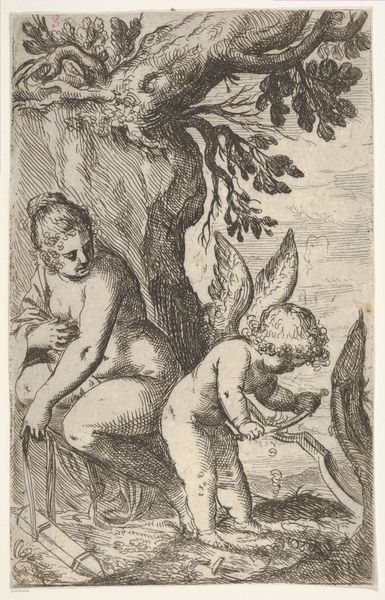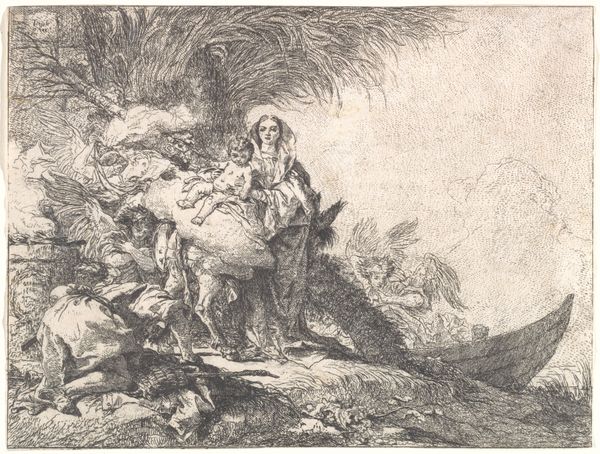
drawing, etching
#
portrait
#
tree
#
drawing
#
baroque
#
pen sketch
#
etching
#
landscape
#
pencil drawing
#
sketch
#
history-painting
#
botany
Copyright: Public domain
Curator: Looking at Salvator Rosa's 1662 etching, "Ceres and Phytalus," currently housed at LACMA, my first thought is: melancholic Eden. Editor: Yes, it has a distinctly bittersweet atmosphere. The pen and ink technique feels so fragile, almost as if the scene itself could crumble. And, given the sociopolitical turmoil that marked Rosa's career, the imagery is ripe for unpacking. This image shows the moment when Ceres, goddess of agriculture, teaches Phytalus about farming, offering both a sapling and enlightenment. Rosa is telling the story of how humankind learned agriculture. Curator: I adore the theatricality. Rosa manages to convey this epic moment through these very intimate, sketchy lines. Look at Phytalus, on his knees, utterly awestruck. Ceres, in her flowing drapery, feels both present and like a vision. There's a gorgeous tension between the human and divine. Is there a hint of sorrow in her expression? Editor: Perhaps it speaks to the complicated dynamics of cultural exchange and power, or even class difference in access to farming knowledge? Agriculture is foundational for society, and its controlled knowledge decides our power structure. Rosa could be engaging with these ideas of ownership, maybe he sees potential loss embedded in progress. This links to Rosa's position as an outsider. The landscapes often teeter between the classical idyll and something darker, a sort of untamed wilderness threatening the supposedly natural order. Curator: Absolutely. And even the wilderness—represented by that looming tree in the background—feels expressive, almost like another character observing the scene. The botanical aspect shouldn't be ignored, either. It emphasizes the life-giving aspect of their exchange. Maybe a return to simple, agrarian societies, in a way that critiques urbanization and mercantilism. Editor: Rosa certainly held strong, oftentimes contrarian opinions. Consider his satires, for instance, fiercely critical of societal corruption. His exploration of agriculture seems linked to broader questions about ethical economics and self-sustainability. It resonates deeply with contemporary issues of land rights, food justice, and indigenous sovereignty. Curator: What I find intriguing is how Rosa uses a historical or mythological event to probe issues that still resonate today. His drawings feel immediate and intensely modern, even. Editor: Agreed. By choosing this specific scene, Rosa transforms a simple etching into a rich tableau prompting deeper reflection on our world.
Comments
No comments
Be the first to comment and join the conversation on the ultimate creative platform.
